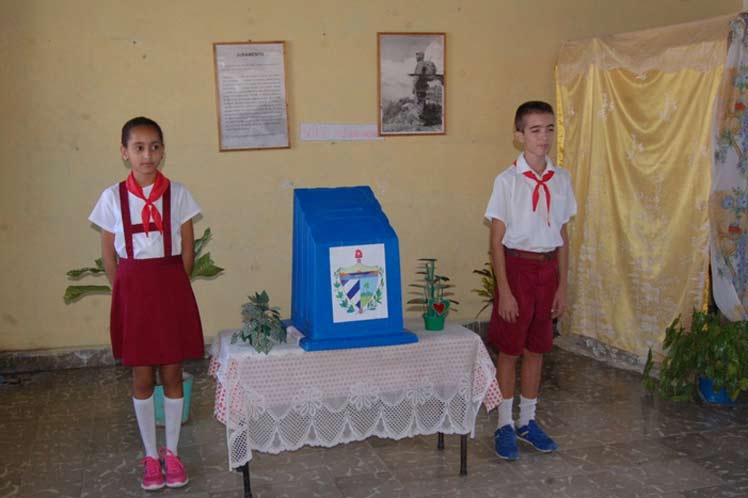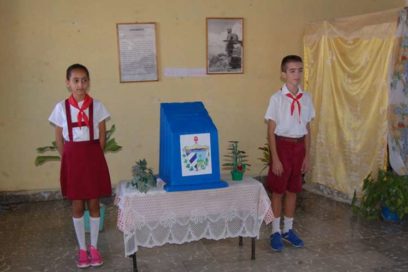
In accordance with the Cuban Electoral Law, the Council of State announced the appointment of the 17 members of the National Electoral Commission (CEN), which headed by Alina Balseiro, will have the responsibility to organize, direct and validate a process in which more than eight million people are called to cast their direct and secrete votes.
‘It is an important step for the organization of the referendum, success to the commission. We go for the YES’, the secretary of the Council of State, Homero Acosta, wrote on his Twitter account, who was part of the group of 33 deputies in charge of drafting the new constitution.
On Friday, the authorities of the CEN will take possession of their positions in the Capitol of Havana, administrative headquarters of the National Assembly of the People’s Power, while between January 4 and 13 the provincial, municipal, constituency and special electoral commissions will be appointed and formed.
On December 22, the Assembly unanimously approved (with the presence at the Conference Center of 583 of the 602 parliamentarians) the Constitution and called for the referendum for its ratification by the inhabitants of Cuba.
In a process described here as unprecedented in Cuba and the world, the text was enriched with popular opinion, after a consultation held between August 13 and November 15 with the participation of almost nine million people, in more than 133,000 meetings in neighborhoods and work and study centers.
According to Acosta, from those meetings and opinions issued by Cubans residing abroad, some 780,000 proposals came out, turned after processing into 9,600 standard proposals, half of them incorporated in one way or another to the Constitution.
The project submitted to popular criteria underwent 760 changes, said the secretary of the Council of State.
When President Miguel Diaz-Canel intervened – on December 22 – at the close of the second regular session of the National Assembly, he called on citizens to support the Magna Carta that would replace the one in force since 1976.
He also recalled the symbolism that represents the day chosen for the referendum, which marked in 1895 the resumption of the struggles for the independence of Cuba.
‘On a date as touching as February 24, 124 years after the resumption of the independence struggle led by the National Hero Jose Marti, the Cubans of these times, faithful to the traditions of struggles, will go to the polls to approve the Constitution, as an expression of firmness, loyalty to the legacy of Commander in Chief of the Cuban Revolution, comrade Fidel Castro, and we will say with our vote: Yes to the Revolution (…) ,’ he ratified.
According to the current Constitution, all Cubans over 16 years of age are entitled to vote, except those who are mentally disabled, upon judicial declaration of their disability, and those who have been legally disqualified due to have been charged with crime.
Therefore, the incorporation to the electoral registry is automatic and free when reaching that age.
The Magna Carta ratifies the socialist character of the country and the leading role in their society of the Communist Party.
The document includes changes in the structure of the State, including the creation of the posts of President, Vice President of the Republic, and of Prime Minister, and extends the rights of individuals, with issues such as guarantees of due process, Habeas Corpus, the presumption of innocence and the social reintegration of prisoners.
It also includes various forms of property, including the socialist of all the people, mixed and private, and reflects the promotion of foreign investment and the strengthening of popular power from the grassroots, with greater autonomy for municipalities. (Taken from Prensa Latina)


